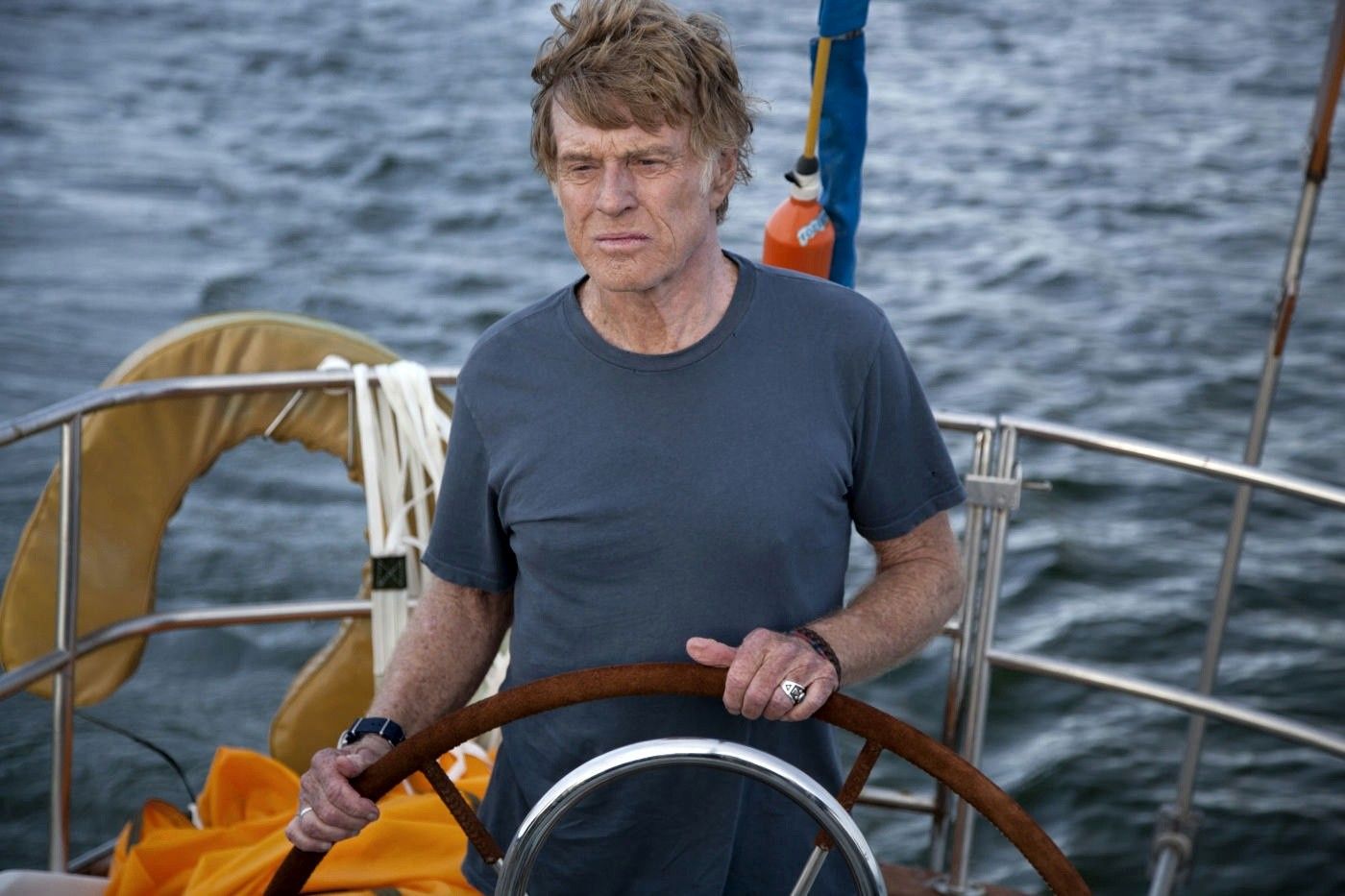Essentially the earthbound, “boy” equivalent of Gravity, All Is Lost eschews emotional back stories and psychological motivations to chronicle an epic showdown between man and nature. Starring Robert Redford as a man battling the elements after a shipping container rips a hole in his boat, the film remarkably provides no information except for what happens and how he reacts to it. But writer/director J.C. Chandor crafts a survival tale that is as tumultuous emotionally as it is environmentally, amply proving that audiences do not need complicated plotting or reams of exposition in order to care for the people they’re watching.
Redford’s character doesn’t even have a name. Awakening one morning to the sound of water unexpectedly pouring into his boat, he races topside to discover he has collided with a shipping container. Although the radio was ruined by seawater, he’s able to repair the damage, and soon strikes back out on his original journey. But after running afoul of a tropical storm, he’s forced to abandon ship for a lifeboat, struggling for survival as the harsh elements test his resolve and repeatedly threaten his life.
In Gravity, Sandra Bullock’s character starts the film with companions, occasionally visits with them in her head as she’s fighting for her life, and offers a running monologue about what she’s doing, why she’s doing it, and what it all means to her. I’m overstating a little, but there is literally none of that in All Is Lost: Other than an open letter read in voiceover to no one in particular during the opening scene of the film, Redford’s character says almost nothing, and leaves it to us to witness his resourcefulness in increasingly hostile situations.
Although it’s natural to expect the hole in the boat is, by itself, the cause of all of Redford’s problems, he actually fixes the damage, and moves on without appearing to be in any further danger. Further, the incident gives viewers a sense of his intelligence, and encourages their admiration as he faces his next challenge. The result is a very clear, straightforward and literal portrait of survival, where his choices not only save him, but set off a sort of chain reaction of things for him to deal with going forward.
This minimalism is the film’s greatest virtue, especially if you, like me, felt the material about Bullock’s child in Gravity was superfluous to the drama that already secured your investment. But where that film can perhaps get past its implausibility by virtue of audiences having literally no frame of reference for what happens in space, All Is Lost is more susceptible to dissection, as it skirts realism in some of its most dramatic moments. For example, on two separate occasions, the character’s vessel turns upside down, but inexplicably does not seem to fill with water – even a little bit. But the continuous reduction of devices, vessels and resources the character faces brings his battle into sharp focus, showcasing how inhospitable the ocean can be to mankind, and how survival may come down to the smallest bits of information you have about the world around you.
Redford is terrific as the film’s lone character, and his quiet resolve creates a trajectory of waning hope as his situation becomes more and more dire. But Chandor’s execution is the key to the film’s success, because he makes the audience feel the isolation of the character, and the danger his life is in, and then presents the character’s self-generated solutions in a smart but matter-of-fact way. That said, the best lesson one could take from the film is not “do what this guy did,” but probably “don’t go out on the ocean in a boat by yourself.” But much like it doesn’t need more set-up, or explanation, it doesn’t need to communicate any lessons, which is why All Is Lost isn’t just unique but uniquely powerful, highlighting the simple truth that sometimes, just surviving is enough.
All Is Lost opens today.


